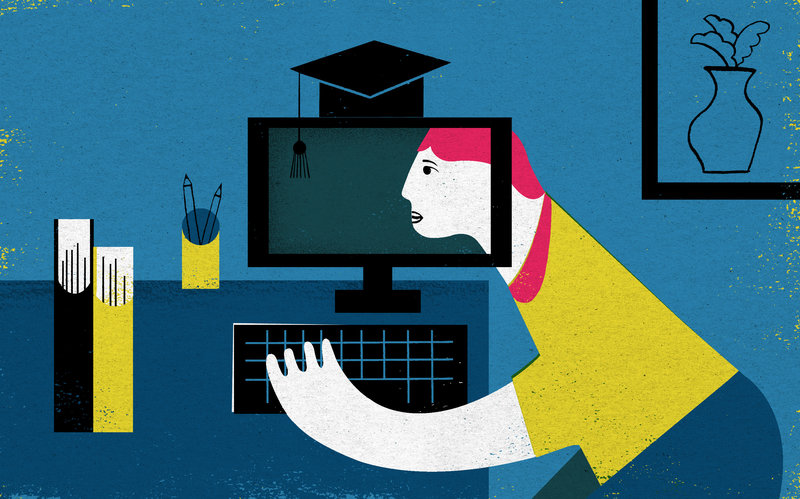Coping with Quarantine
November 17, 2020
Right now, the Venice High community has had an abundant amount of time to just sit at home. Besides doing schoolwork, students have few places to go in their spare time and have too much time to spend online.
In an age where entertainment is extremely personalized, addictive, and in the palm of our hands, what are the best ways to cope while staying (mostly) sane and safe?
School psychologist Joana Trocan-Garrett recommended using the internet with caution.
“We have to remember that these algorithms are created by computers, and the way they do it is they take whatever information you give them when you search,” she said. “Remember these are computers and computers don’t have feelings.”
While social media does help people stay connected, Trocan-Garett also said that student can connect with each other through phone calls and—and if done safely—hanging out with a friend in person,
“I know it’s harder for teenagers especially, because they’re so used to texting,” she said. “There have been studies shown that human interaction can lessen stress and anxiety.”
Chemistry teacher Esmeralda Lopez is someone who sees pros and cons of using the internet to cope with quarantine.
“I think the internet had some negative effects on my mental health and self-perception because I used to compare myself socially a lot,” she said. “I saw a huge positive difference when I deleted Facebook and Instagram.
“Social media can be negative, but it has some positives, too, especially because I can connect with others.”
Junior Jaidah Tyler said that it’s hard to know what she would be doing if social media and streaming services didn’t exist during quarantine.
“Maybe I’d be more social with people in my life and would have to be outside more,” she said. “I would be with my friends more than usual.”
But in the meantime, she’ll keep up with TikTok and continue watching supernatural TV shows on Netflix.









 Watch the full video o
Watch the full video o







![Taylor Swift’s newest album titled Midnights 🌙 takes a deeper look at the persona of Taylor herself, and according to reporter Alina Miller, although this isn’t Taylor’s best work, there are highlights worth mentioning about. 💫
Click the link in the bio to check out the full article!
[Photo Caption: Taylor Swift hits all top 10 spots on Spotify’s Billboard Top 100 chart]
#taylorswift #midnights #tiktok #antihero #spotify](https://scontent-iad3-1.cdninstagram.com/v/t51.29350-15/314744727_1556543814822641_1643591421920256829_n.jpg?_nc_cat=110&ccb=1-7&_nc_sid=8ae9d6&_nc_ohc=aDxNzq2snTYAX_gAl0G&_nc_ht=scontent-iad3-1.cdninstagram.com&edm=ANo9K5cEAAAA&oh=00_AfBa4EluVzZT-7d5rKyT6tLJo0UJuCvRJPSCMX71aeO38Q&oe=63965890)



 Watch the full video
Watch the full video 
